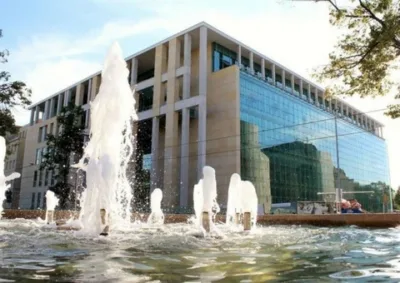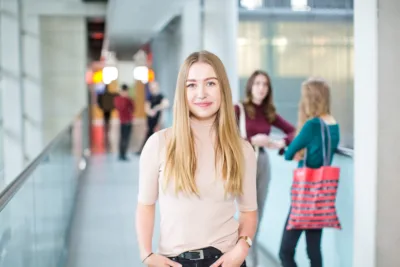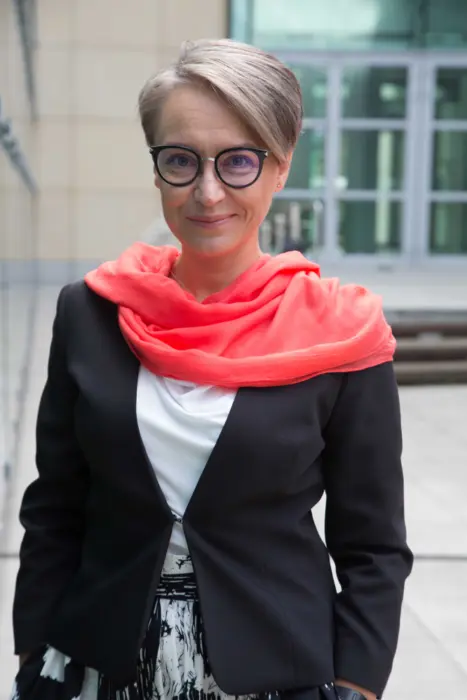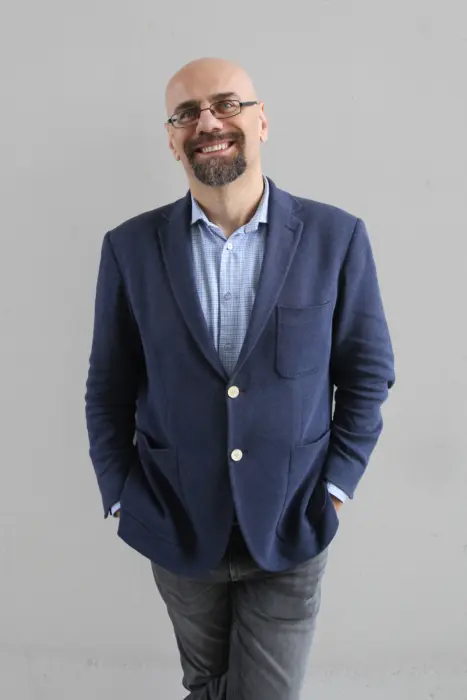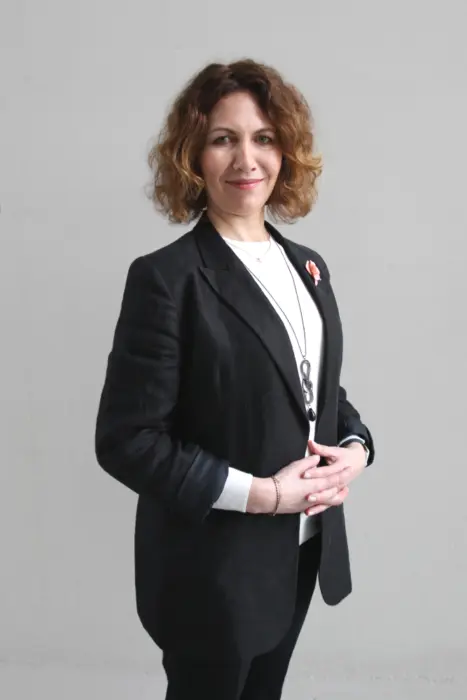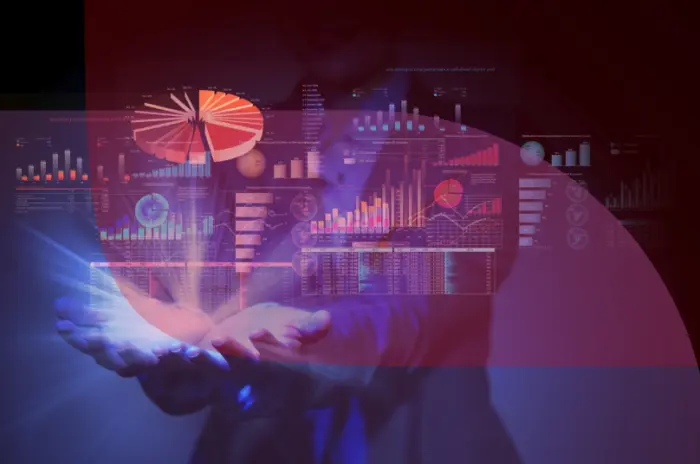
RID Project 2: PUEB for Economy 5.0: Regional Initiative - Global Effects (RIGE)
Applying for funding for the implementation of the project “PUEB for Economy 5.0: Regional Initiative – Global Effects,” we relied on substantive and organizational experiences gained during the years 2019-2023 while implementing the first project funded by the Regional Excellence Initiative (REI) Program titled “Economics in the Face of the New Economy.” In the new project, we will expand the scope of tasks undertaken both in terms of entities (including doctoral students) and subjects (covering new research topics and themes). Additionally, we will strengthen the internal ecosystem for conducting scientific work and teaching at UEP (with particular emphasis on publishing, library, IT support, and marketing activities).
XIV Research Conference at PUEB: "STER on RIGE"
place: 111A
-
Open Competitions
As part of the project, competitions for funding have been launched:
- Scientific research under the name “RIGE – research”,
- Conference trips under the name “RIGE – conferences”,
- Publication process under the name “RIGE – publications”. The competition regulations and electronic application forms can be found at the link provided.
Applications for a given round can be submitted until the 21st of the month. Applicants will receive a decision on funding by the 7th of the following month.
In exceptional justified cases, it is possible to consider an application outside the deadline; requests regarding this matter should be sent via email to ireg@projekty.ue.poznan.pl.
Coordinator team office hours starting March 18, 2024:
- Mon.-Thurs.: 10:00-12:00, room 0039 (building A, ground floor).
-
IREG Trainings
Training on bibliometric analysis conducted by: Dr. Łukasz Kryszak, dates: March 22 and April 5, 2024.
Bibliography management using Mendeley program conducted by: Dr. Jakub Staniszewski, date: April 18, 2024.
Utilizing ChatGPT 4 led by: Mr. Marcin Gurtatowski, Dr. Natalia Gluza, date: May 6, 2024.
Utilizing software packages in qualitative research using MaxQDA as an example conducted by: Dr. habil. Piotr Trąpczyński, Prof. UEP, date: June 7, 2024.
Training on STATA software package operation conducted by: Dr. Łukasz Kryszak, June 14, 21, 27, 28 – 1 training, 4 sessions.
How to publish in internationally renowned journals – practical guide conducted by: Dr. habil. Milena Ratajczak-Mrozek, Prof. UEP, date: June 14, 2024.
Creating visual content using SI-based tools led by: Mr. Marcin Gurtatowski, Dr. Natalia Gluza, date: September 13, 2024.
Utilizing SI tools for translation and linguistic text correction conducted by: Mr. Marcin Gurtatowski, Dr. Natalia Gluza, date: October 25, 2024.
Details and registration on the website: https://ue.poznan.pl/en/staff/training-for-employees/
-
RIGE Clause
Supported by funds granted by the Minister of Science of the Republic of Poland under the „Regional Initiative for Excellence” Programme for the implementation of the project “The Poznań University of Economics and Business for Economy 5.0: Regional Initiative – Global Effects (RIGE)”.

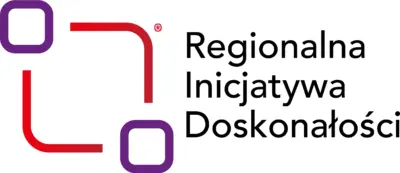
Project scope for the years 2024 - 2026
-
1. Establishing a Greater Poland Center for Research on Economy 5.0 by expanding the work conducted under the RID 2019-2023 project and exploring new research areas within the field of Economy 5.0
When we first identified a research niche in 2018 and subsequently designed scientific work and tasks to be financed through the funds of the first REI competition, the digital transformation was just beginning. The socio-economic reality following the outbreak of the Covid-19 pandemic and the multidimensional expansion of digital technologies that occurred after 2020 were not predictable a priori. However, the research intuition that led us to undertake studies in the field of Industry and Economy 4.0 enabled us, at the moment when changes accelerated, to possess the resources and tools for their methodical analysis and interpretation. Today, thanks to the results of our original research, we are aware of the depth and diversity of transformations that have already occurred due to digitalization, those that are still ongoing, and those that may and should occur to counteract (post)pandemic threats and other crisis phenomena (including climate challenges, energy, food, and water supply constraints). The global security destabilization resulting from Russia’s ongoing aggression against Ukraine further complicates the situation and points to other threads requiring the attention of researchers in the fields of economics, finance, management, and quality sciences, through the works of which counteracting the negative effects of the conflict should be more efficient and effective, also (and perhaps especially) using digital technologies.
In designing research work, we assume that in the substantive layer, we will consistently focus on identifying current problems and challenges at various levels of the economy (mega, macro, meso, and micro), studying them, and proposing solutions useful at the level of consumers (households and families), companies, industries, regions, and the entire national economy. Formulating recommendations for individual areas of economic policy will also be significant.
2. Conducting training sessions for scientists and supporting staff involved in research on Economy 5.0, including dedicated workshops and individual methodological consultationsThe implementation of the project will enable the provision of training on topics such as the adequacy of selecting and using methods for specific research problems (both quantitative and qualitative) and decisions related to publishing strategy (selecting the appropriate publication venue, drafting a cover letter addressed to the editor, and responding to reviews), as well as securing funding for further research. Some training and consulting activities would have an internal self-help nature. An additional benefit would be closer integration of a large, multidisciplinary team with diverse ages and experiences, as well as strengthening mutual learning and the cross-pollination of research fields, resulting in the reinforcement of organizational synergy. Competencies that require interaction with external entities (training institutions, journal editors, representatives of research funding institutions) would be developed through commissioned training and consultations.
3. Strengthening the substantive and technical infrastructure for research on Economy 5.0 and building a globally recognizable forum for scientific discussion on research topicsThe first action aligned with the stated objective would be to increase the resources of the PUEB Library by purchasing literature essential for research and ensuring access to sources of scientific information. The planned research will require monitoring and access to the latest results of scientific research as well as various types of data. Hence the necessity of gradually increasing the resources of the PUEB Main Library, especially in literature published by foreign publishers and not available in databases offered under national licenses. Secondly, conducting research on Economy 5.0 requires the use of appropriate research tools, thus the purchase of software supporting the editing and publication of scientific texts is planned. The third action, aimed at building a recognized international forum for scientific discussion on the subject of research, is the development of PUEB Publishing House in terms of publishing journals.
-
4. Strengthening competencies, integration, and activation of participants in the UEP Doctoral School
by allocating a specially designated budget for research conducted with their participation, from which doctoral grants supporting research activity, publication, dissemination of results, and doctoral mobility would be awarded through competition. Such support would enable young researchers to gain experience not only in conducting research – from its design to disseminating results – but also through becoming familiar with the procedure of applying for funds, developing skills in managing schedules and judiciously spending allocated amounts, and then accounting for them, which would facilitate future efforts to obtain funding from external sources. In this way, young researchers would become more aware of the expectations placed on mature scientists, adeptly take care of the future of their careers in an entrepreneurial manner, feel a stronger connection with the university supporting their development, and also gain greater research independence.
5. Utilizing research findings on the transformation towards Economy 5.0 in organizing the teaching processby incorporating the authorial outcomes of research (in the form of scientific articles and monographs, as well as other materials disseminating research results) into the curricula and teaching materials for courses taught at PUEB, introducing new subjects and modifying existing ones, particularly in terms of implementing innovative teaching methods with a focus on digital solutions.
-
6. Popularizing research results on Economy 5.0 in the local and regional community
Disseminating the results of research conducted within the project is essential to ensure that scientific achievements are accessible and understandable to a wide audience. Therefore, there are plans to extensively utilize social media platforms to share summaries, infographics, photos, or videos presenting research results that are understandable to direct stakeholders as well as a broader audience beyond the academic community.
7. Intensifying cooperation with businesses, local governments, non-profit organizations, and social partnersAn important means of disseminating the results of research conducted on Economy 5.0, as well as a tool for building and strengthening ties with the professional environment of the University, will be a quarterly newsletter showcasing research findings and encouraging University partners to implement them in practical terms. The research will also be summarized in annual reports, promoted during seminars for business representatives and local government units. Close cooperation with the environment will help diagnose and develop strategies for solving difficult problems identified in entities surrounding the University, enhancing PUEB’s image as an entity capable of contributing to the long-term development of the region.
Manager and coordinators of the IREG project
Contact
Email address: ireg@projekty.ue.poznan.pl.
Office hours of the project team coordinators from March 18, 2024:
Mon-Thu: 10:00-12:00, room 0039 (Building A, ground floor).



